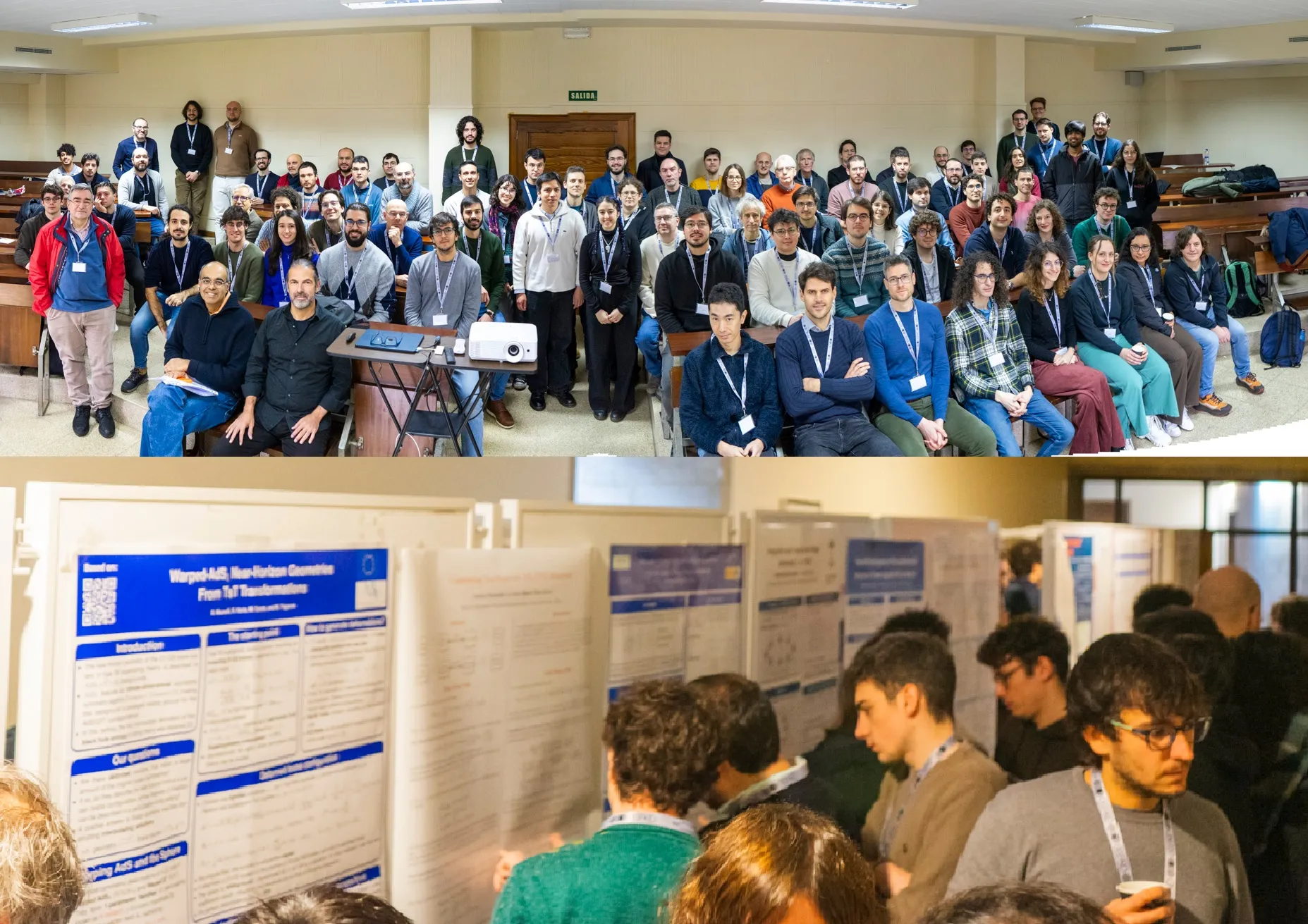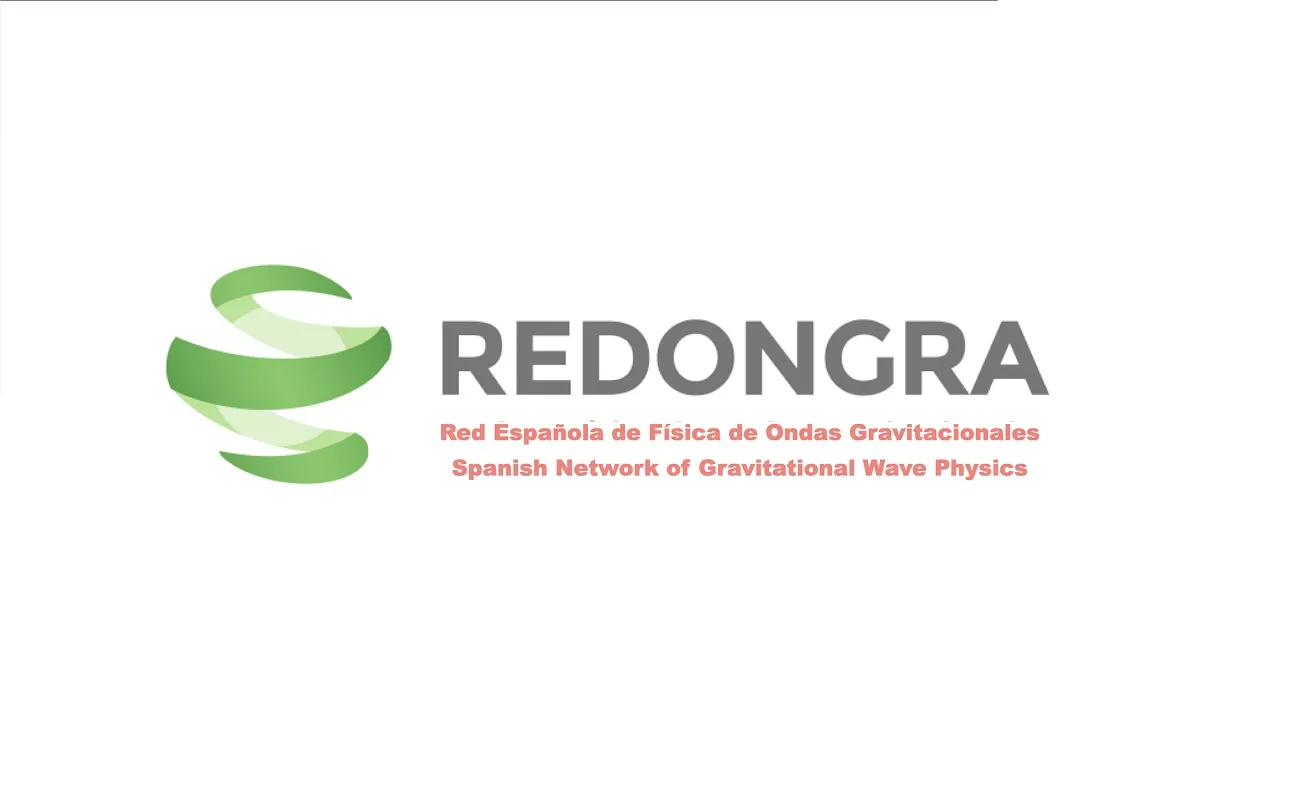Iberian Strings 2026 conference brings the string theory research community together in Santiago



09.07.2025

The Spanish Network of Gravitational Wave Physics (REDONGRA), of which IGFAE is a member, has obtained important funding from the Spanish Ministry of Science, Innovation and Universities 2024 call of Redes de Investigación. The financial support recognises REDONGRA’s strategic importance in consolidating and expanding Spain’s leadership in the field of gravitational wave science.
REDONGRA has two main objectives: to coordinate and maximise Spain’s contribution to gravitational wave science and to prepare the next generation of scientists and infrastructure for future flagship missions like LISA and the Einstein Telescope. The network will develop a roadmap for Spain’s strategic involvement in these missions to advance their understanding of the Universe through the detection and analysis of gravitational waves.
The network, led by Carlos Fernández Sopuerta, a senior researcher at the Institute of Space Sciences (ICE-CSIC), brings together 20 top research groups from across Spain, including institutions already active in major international collaborations such as LIGO, Virgo, the Einstein Telescope, LISA, and Pulsar Timing Arrays (PTAs).
“The REDONGRA network provides a unique opportunity for the growing Spanish community working on gravitational wave astronomy, that will enhance the participation in the current and future international collaborations”, says Carlos F. Sopuerta.
IGFAE at REDONGRA
The Gravitational Waves team at IGFAE, led by Thomas Dent & Juan Calderón Bustillo, has played a significant role in the Spanish community since its inception in 2018, being the only group to undertake the end-to-end analysis of gravitational-wave signals from detection through to astrophysical interpretation.
The IGFAE team is currently working to finalize the latest results from the most recent observing run of LIGO, Virgo and KAGRA, which recently identified the 300th candidate detection from merging black holes or neutron stars since 2015.
The activities of the network started in May 2025 and there are already different events programmed for the rest of the year. First, on 23-25 June, the Iberian Gravitational Wave Meeting was held (with Juan Calderón as Chair), where all network members gathered to review progress, share research updates and plan collaborative projects for the coming year.
Other activities for this year include the tenth anniversary of the first Gravitational Wave detection on 15-16 September at the University of the Balearic Islands (UIB), in Mallorca (where Thomas Dent was invited speaker); the second LISA Spain Meeting on 23-24 October, at CSIC in Madrid; and the 10th anniversary LISA Pathfinder mission’s launch on 3 December at the ICE-CSIC, in Barcelona. In the future, the network will also organize a school on gravitational wave physics, where there will be a comprehensive training programme for graduate students entering the field of gravitational wave astronomy.
This new phase in REDONGRA’s development represents a significant expansion of its previous iterations and places Spain at the heart of a rapidly evolving international landscape. By aligning top-tier research institutions under a shared vision and by investing in training and outreach REDONGRA is set to make gravitational wave science not just a scientific frontier, but a national strength.
20 top research groups in Spain
THE REDONGRA network is comprised by the following institutions: the Institute of Space Sciences (ICE-CSIC), Centro de Investigaciones Energéticas, Medioambientales y Tecnológicas (CIEMAT), Instituto de Astrofísica de Andalucía (IAA-CSIC), Instituto de Astrofísica de Canarias (IAC), Institute of Cosmos Sciences of the University of Barcelona (ICCUB), Institute for the Structure of Matter (IEM-CSIC), Institut de Física d’Altes Energies (IFAE), Institute of Physics of Cantabria (IFCA-CSIC/UC), Instituto de Física Corpuscular (IFIC-CSIC/UV), Institute for Theoretical Physics (IFT-CSIC/UAM), Instituto Galego de Física de Altas Enerxías (IGFAE), University of Alicante (UA), Universidad de Cádiz (UCA), University of Granada (UGR), University of the Balearic Islands (UIB), Universitat Politècnica de Catalunya – BarcelonaTech (UPC), Technical University of Madrid (UPM), University of the Basque Country (UPV/EHU), Universidad de Salamanca (USAL) and University of Valencia (UV).
IGFAE incorporated gravitational wave astronomy to their scientific agenda on 2017, after being accredited as María de Maeztu Unit of Excellence. In that year, the IGFAE scientific directorate identified gravitational waves as a great opportunity to open a new line of research. This commitment resulted in the creation of a team at the centre itself and the incorporation into the LIGO collaboration in 2018.
In these years, the Institute’s staff has already taken on relevant analysis tasks in this experiment, which involve over 1500 people from 20 countries. In addition, some detections of these events are opening the door to demonstrating the existence of cosmic objects beyond the Standard Model, as well as candidates for dark matter. With the opening of the new headquarters, the IGFAE also plans to dedicate one of its laboratories to the development of instrumentation for gravitational wave experiments.
The Instituto Galego de Física de Altas Enerxías (IGFAE) is a research center established in 1999 by the University of Santiago de Compostela and the Xunta de Galicia. Its mission is to coordinate and promote scientific and technical research in High Energy, Particle, and Nuclear Physics, as well as in related fields such as Astrophysics, Medical Physics, and Instrumentation. The institute hosts around 140 members involved in major experimental facilities such as CERN, the Pierre Auger Observatory, LIGO, and GSI/FAIR, among others.
The IGFAE has been accredited as a María de Maeztu Unit of Excellence by the Spanish Government’s State Research Agency. It is also part of the CIGUS network of the Regional Government of Galicia, which accredits the quality and impact of its research. The center is co-financed by the European Union through the Galicia Feder 2021-2027 Program.